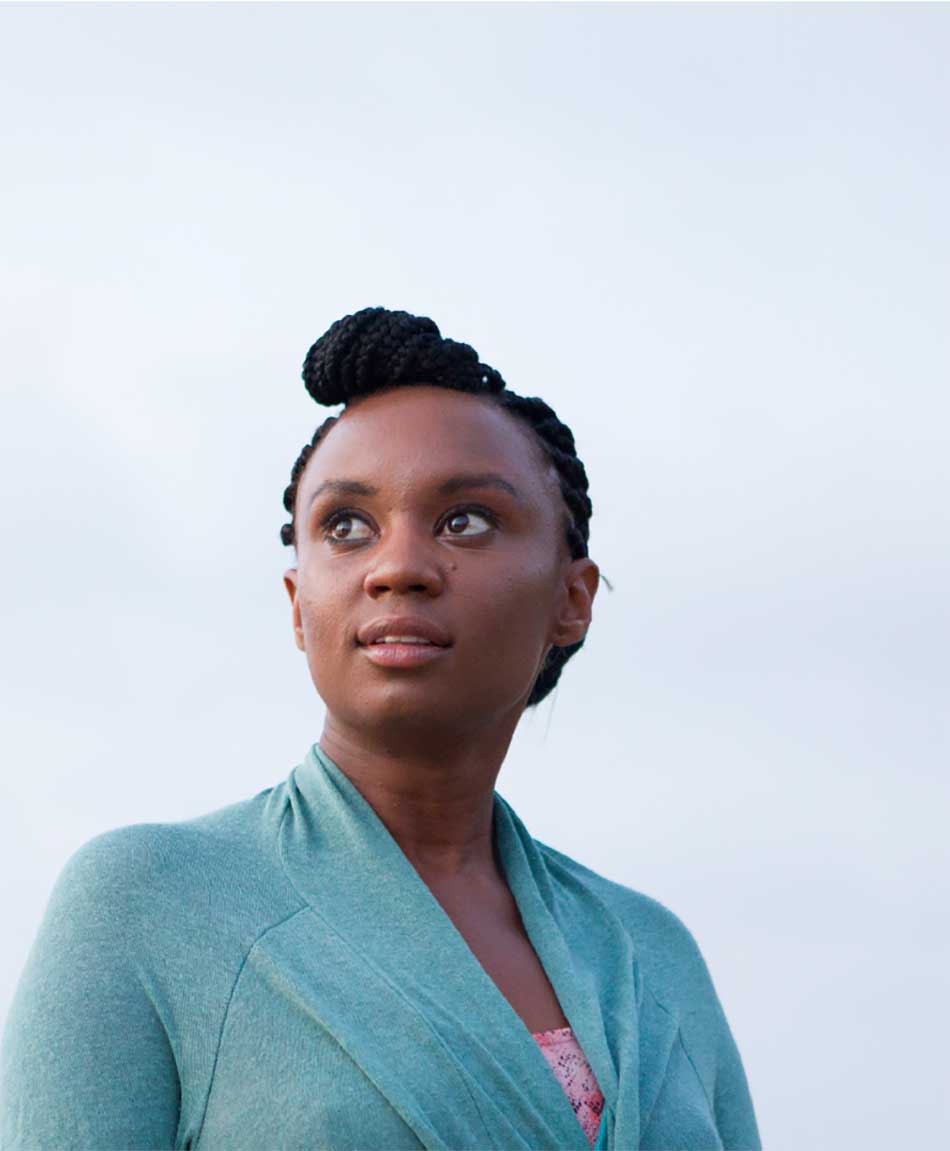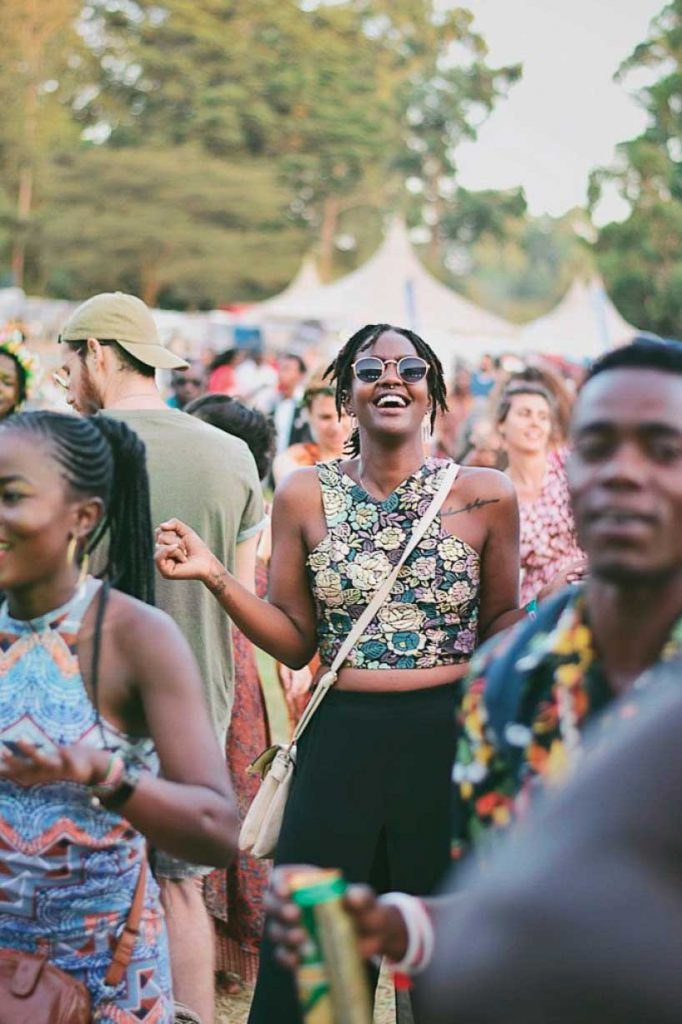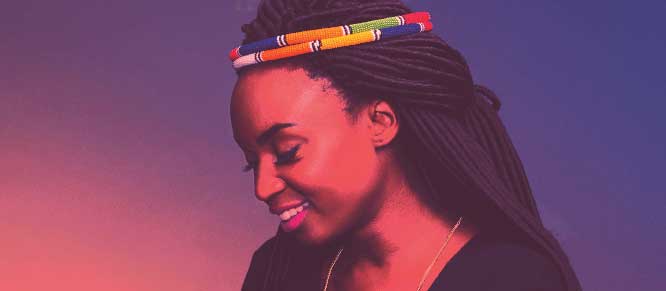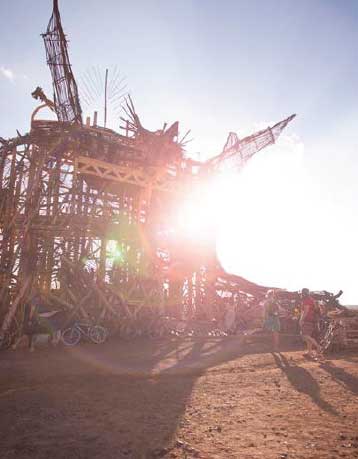FUN, FIERCE AND FRIVOLOUS: MEET WANURI KAHUI, FOUNDER OF AFROBUBBLEGUM
Wanuri Kahui founded AFROBUBBLEGUM to curate, create and celebrate art for art’s sake, to help African artists break free from the constraints that ‘Africaness’ imposes, and to empower an altogether more fun, fierce and frivolous view of Africa.
Katie Palmer finds out what’s really important from the woman herself.

We Are Africa’s mission is to combat stereotypes and show that Africa is #NotOneStory, to encourage more people to travel to and around the continent. Hearing your TED talk (‘Fun fierce and fantastical African art’ – check it out) was a revelation because we were reminded that not everything we do has to be ‘important’, that sometimes it’s okay to just be “fun, fierce and frivolous”. In fact, we used this idea as the basis for this year’s campaign.
I’m so glad it resonates in that way because, as a Kenyan, I completely believe in travelling within the continent – it’s a big thing for us. Even as an African you have a concept of Africa being one place… Then you travel and you see just how varied the multiple expressions of African-ness are – the joyous celebration of all these different types of expressions is great.
“You travel and you see just how varied the multiple expressions of African-ness are – the joyous celebration of all these different types of expressions is great”
You’ve suggested that one of the reasons for the single story is that because Africans have only seen one image of themselves for so long, it’s all they know how to create. Do you think this stereotype is almost a self-fulfilling prophecy?
I don’t think it’s a self-fulfilling prophecy because some of the language used about us was put upon us – so it wasn’t a prophecy on our behalf, if you think of a prophecy as a projection into the future.

So, I wouldn’t use the word ‘prophecy’, but I think that people began to adopt the language that others have given us or used to describe us, and we’ve begun to accept it; but I think that there are ways of creating new language and new ways to see ourselves.
Even Trump’s most unfortunate comment [when he referred to several African nations as “shitholes”] has created a division regarding language within the continent between the people who do and don’t agree. For me, it became super indicative of how fractured we are, to allow people to make comments about us that are disrespectful and show a lack of regard and understanding – and to agree with it.
The idea of agreeing to a myopic viewpoint, within Africa, is very troubling. For me, it shows the need for us to create positive content, positive experiences and positive images of Africa.
“The idea of agreeing to a myopic viewpoint, within Africa, is very troubling. For me, it shows the need for us to create positive content, positive experiences and positive images of Africa”
On that note, can you explain the concept of AFROBUBBLEGUM?
At AFROBUBBLEGUM, what we intend to do is curate, commission and create fun, fierce and frivolous African art. Mostly, it’s to show other Africans about how to view themselves as fun, fierce and frivolous – and then to allow others into the conversation around how they can engage with Africa as a fun, fierce and frivolous place.

When you first started creating science fiction you were told it was ‘un-African’ – can you tell us about that?
Often you’re asked questions about your work that you find almost impossible to answer, because it’s hard to justify why you create. So often, African artists are asked exactly that: “Why is your work important? Why is it worthy of space? Why is it a luxury?”
My answer is: Does it have to be important? What if it isn’t important? What if everything we created were completely unimportant and made absolutely no difference? What if we were just creating for it not to be important – what would the difference be then? Why would it make a difference?
AFROBUBBLEGUM challenges the idea of importance. Who is to say what is important?
“AFROBUBBLEGUM challenges the idea of importance. Who is to say what is important?”
Like art, travel can be a powerful took for creating awareness around serious issues; but, also like art, perhaps this needn’t always be the case. What advice would you give travel operators who want to be more AFROBUBBLEGUM in their approach?
There are many different types of AFROBUBBLEGUM travel experiences. One of them is cultural: music festivals; arts festivals – it’s a great way of exploring Africa, through the arts. I think I take a fun view of Africa for granted…

In Cape Town there are beautiful galleries. In Ougadougou you have the film festival; in East Africa you have these great three-day concerts called Africa Nouveau. There’s another one that is in Tanzania, which is a music festival. We have Africa Burn in South Africa. There are just so many different cultural experiences that celebrate the fun, fierce and frivolous view of Africa.
I think AFROBUBBLEGUM travel would include staying in beautiful places, with stunning landscapes, and enjoying the cultural experience – be it a music concert or an art show of modern, contemporary African art. That would be an AFROBUBBLEGUM experience.
You’ve created a Bechdel-inspired test of three questions that define AFROBUBBLEGUM art: 1. Are the Africans in this art sick or dying? 2. Are the Africans in this art in need of saving? 3. Are the Africans in this art desperate, hopeless and lost? (Art that answers ‘no’ to all three qualifies.) How can travel operators become AFROBUBBLEGUM-ists?
Just by not doing poverty, poor, slum-dwelling travel tours. It’s a pet peeve. I think it’s so humiliating on so many levels.
Also, by reframing the language we use to describe the people. When you describe African landscapes, it’s always positive, glorious, majestic, stunning, breathtaking and sweeping – and all these wonderful adjectives. But, when you describe the people, do you use the same language?
In your TED talk you mentioned that a lot of African art is dependent on developmental aid, which, in turn, means that that art becomes a tool for agenda. Do you think it’s ever okay to use art as a tool for agenda?
Yes, I think it is. I think it’s the most important way to use art. It’s the way that it’s used across the world, and it’s the reason that we have nursery stories, so that we learn morals, national values and everything like that. Storytelling is important in every aspect, and arts are important in every aspect as a result of that.
But right now, it seems to be that one outweighs the other. My argument is that there should be a balanced view.
[This article was published in Beyond: Empowered, We Are Africa’s print magazine, in May 2018.]











